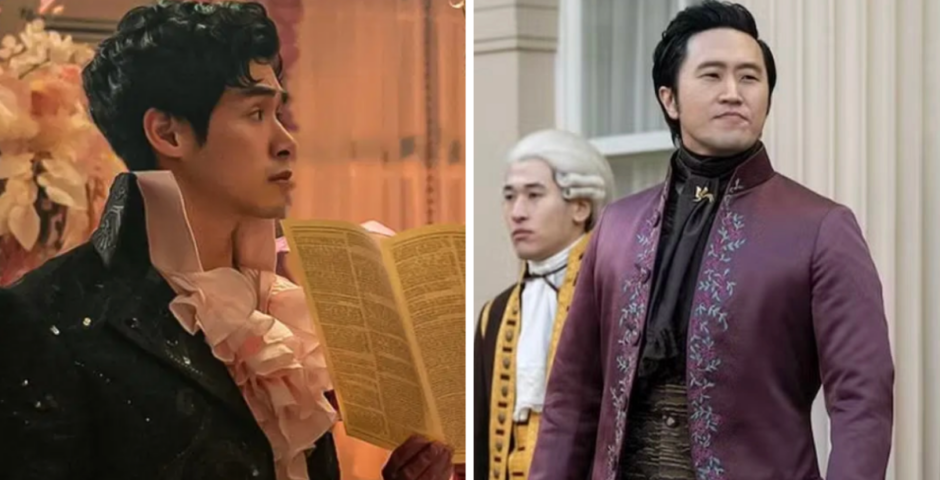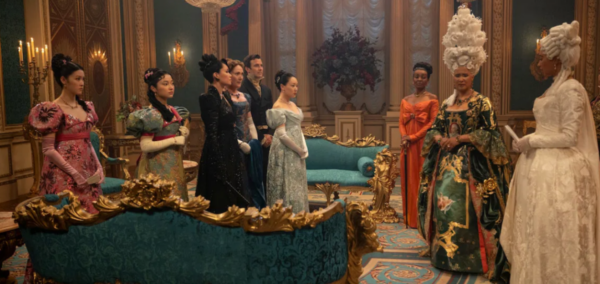
Review: Julius Caesar
The Cambridge American Stage Tour’s production of Shakespeare’s tragedy closes the summer on tour with a home run
Tragedies are difficult to stage. There is a dangerous potential for heavy-handedness and melodrama, which can absolutely sink a play. In such cases, the actor wailing in grief onstage has the audience wailing with laughter. But the Cambridge American Stage Tour (CAST) know what they’re doing. In this production of Shakespeare’s Julius Caesar, every choice– from staging and lighting design down to an actor’s slight angling of the chin– is both contained and intentional.
Having completed eight performances across the United States, the nine cast members comfortably exhibit a tangible sense of self-assuredness in every role, so that the show takes on an impressive and professional feel. Eddie Adams is beautifully, almost lazily confident in the titular role of Caesar– in his physicality alone, he perfectly embodies complacency in the role of power. Isaac Jackson‘s Brutus is carefully crafted, impressively nuanced; likeable and loathed in turns. Jackson has mastered the far-off look of distraction, the rare gift of the eye-line, and presents in every moment onstage the picture of a man in deep, distressing inner conflict.
He preserves Brutus’s integrity as an honest man whose drastic actions are rooted in true devotion to what he believes to be right, torn in the classic tragic conflict between personal love and an impression of greater good. In the play’s more violent, heated scenes, Jackson loosens his tight composure just enough to show us the corruptive pull of power– to use the words of the bard himself, “For who so firm that cannot be seduced?”

Image credits: Katie Burge
These words ring out onstage, spoken forebodingly by Eanna Ferguson in the role of Cassius. Ferguson’s every movement is saturated with slow, dangerous poise, seductive as the power her character covets. In a cast full of quietly commanding presences, Ferguson skilfully differentiates the important role of Cassius with an energy always somehow textured by violence.
Eyoel Abebaw-Mesfin is quite frankly captivating as Mark Antony. Self-contained and sure, Abebaw-Mesfin effortlessly manages the moods and incongruities held within his character– comedic rogue, devoted friend, manipulator of public emotion– and reconciles them as fluid, shifting parts of a distinctly immoveable nature. He mourns the death of his friend with a soft, silken sadness that is infinitely more moving than any noisy rage of grief, because you see on his face the question of why? In the height of emotion, he anchors the character of Mark Antony in the power of reason. This power then shines in Antony’s courtroom-style monologue, where Abebaw-Mesfin enters the rows of the audience for a masterclass in swaying public opinion– an effective staging choice which has the audience feeling eerily, unavoidably involved.

Image credits: Katie Burge
The set is necessarily economical for a show on tour, consisting of a throne, an opaque mesh screen, and propaganda posters, all cleverly used to advantage. Lighting choices reflect the more extreme or more malleable natures of characters in monologue: a sharp, high-contrast spotlight for Cassius; a paler, greyer wash for Brutus.
But the show’s most impressive aspect remains the actors’ movement and physicality, enabling distinct characterisation in a small cast where most actors take on multiple roles. The careful, conscious blocking of each scene allows distance to mediate the dynamics of tension and intimacy. The fight choreography is fluid and efficient: it uses only what is needed, and does it with a kind of beauty. This production understands that movement is often most powerful, most engaging, when it is used sparingly and intentionally.

Image credits: Katie Burge
“Tackling this play of epic proportions amidst the biggest worldwide election year in recent decades has been an incredibly thought-provoking process,” writes director Imogen Gray, “and watching the play develop within this context has only emphasised the ubiquity of Shakespeare’s words.”
The chorus, dressed in American varsity sweaters, wryly situate the play’s great power-struggle in a modern-day world where global politics seem more rife with petty grudges, obstinance, and intolerance than any student-body politics. Tragedy should always ask impossible questions, and nothing feels more impossible than trying to fix a system of political bodies and public media whose first priority is not the best interests of the people they claim to serve. Director, cast, and crew are distinctly attuned to the warnings against rhetoric, against the manipulation of words and emotions and public attention, that this play asks us to be alert to.
Gray concludes: “Raising questions that reach to the very core of what it means to be a citizen, how we determine truth from falsehood, and what happens when politics fail, the story of Julius Caesar resonates across continents.”
When the applause is over and the actors disperse, the audience is left with this provocative image: a spotlit, empty throne. As we leave, we ask ourselves what it should take to fill that seat.
This is an impressive production which demonstrates all the benefits that extended time, rehearsal, and performance experience have to offer. CAST has taken this show beyond the realms of ‘amateur’ production. This is student Shakespeare with the fluidity, confidence, and maturity of what you might expect on a professional scale. You don’t want to miss it on its home leg.
5/5
Julius Caesar is showing Wednesday 9th October – Saturday 12th October at the ADC Theatre. Book your tickets here.
Feature image credits: Katie Burge


















